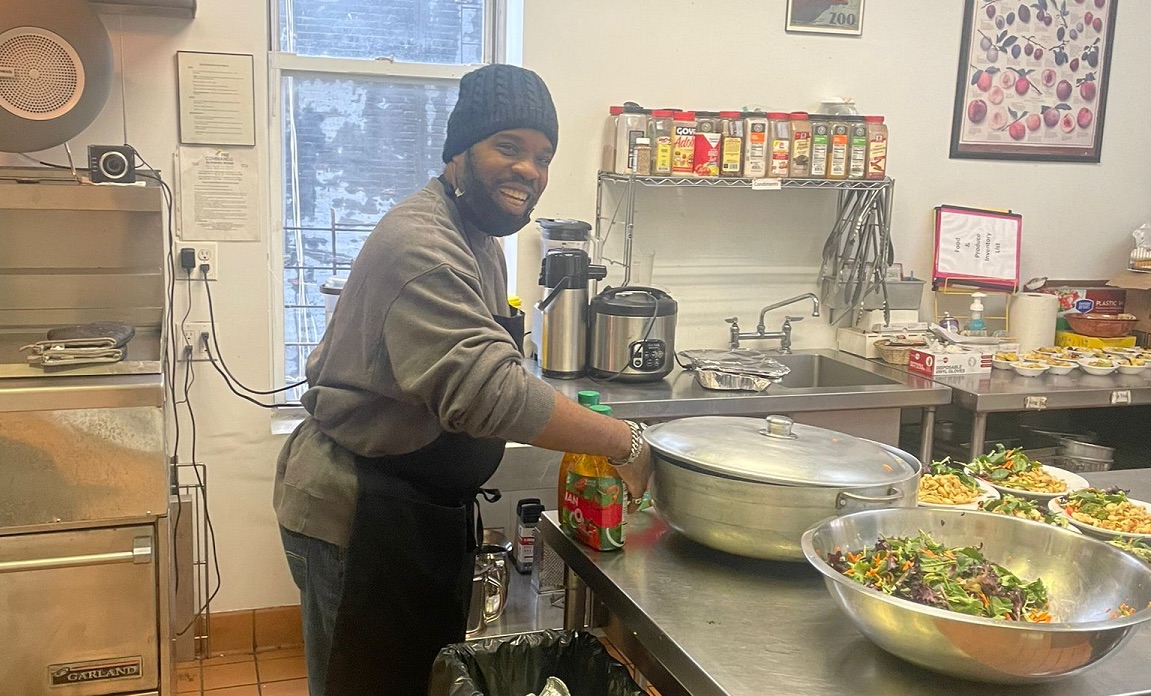Arvind Sooknanan, 23, had been inside too many psychiatric institutions to know he needed a community that understood and accepted him wholly.
He found that support at Fountain House, a community that celebrated his strengths and acknowledged his experience with severe mental illnesses. Four years ago, when he arrived at Fountain House in Mott Haven, he felt he could live with dignity.
Recently, Sooknanan met Bronx Rep. Ritchie Torres (D-NY) and helped draft a bill that would give people like him access to more communities like Fountain House.
In December, Torres introduced legislation that requires Certified Community Behavioral Health Clinics (CCBHC) to add psychosocial rehabilitation methods that focus on building self esteem. The bill advocates for a wider holistic view on treating people with severe mental illnesses.
“This bill works to expand access to these lifesaving services and ensures that those in need of vital mental health services do not have to go without,” said Torres, in a statement to the press.
The CCBHC Expansion Act of 2022 would require psychosocial rehabilitation activities that help people with serious mental illnesses learn essential life skills such as cooking, cleaning and gardening – all to give them a sense of self-reliance that will help them find jobs.
New York is one of nine states that has Medicaid grants to provide services in community behavioral clinics. This bill would require that these additional services be covered under Medicaid.
Community behavioral clinics serve anyone who requests care for mental health or substance abuse. There are almost 450 such clinics across the country, according to the federal Substance Abuse and Mental Health Services Administration. Three of them are in the Bronx; at 915 Westchester Avenue, 770 East 176th Street, and 300 East 176th Street.
At Fountain House, clients are involved in the day-to-day decision-making process as part of their psychosocial rehabilitation. They have jobs at the pantry, kitchen and administrative offices.
“From something as small as cleaning the bathroom, or throwing out the garbage to making phone calls to fellow members, no task is too big or small,” said Sooknanan.
Members are even encouraged to lead different in-house activities that engage the rest of the community at the house. These have included one-on-one tutoring, yoga sessions, healing circles, comedy shows and producing the weekly Fountain House Times newsletter.
“I think there’s that immediate trust that you don’t find in other places,” said Sooknanan. For him, the members and staff helped him regain his confidence to go back to college. He is now enrolled in Lehman College as a philosophy major. His goal in life is to run an organization similar to Fountain House that helps people.
Fountain House also helps members prepare resumes, guides them through the job interview process, and supports them in keeping their jobs. In the event a member is unable to work, Fountain House takes full responsibility and provides the employer with a staff replacement for the day.
While most members start off with entry-level jobs through the Transitional Employment program, many are able to get full-time, independent jobs afterwards. The aim is to instill self-confidence.
Fountain House’s clubhouse in the South Bronx works with about 200 people living with serious mental illness each year.
Fountain House is designed for members who voluntarily want to work and live independent lives. “You’re not mandated by anybody to be here,’’ said Sooknanan.
The bill will likely be reintroduced in the 118th Congressional session just begun, according to a Torres spokesman.

